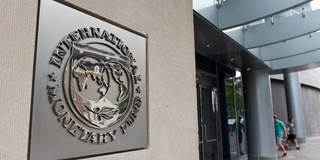The 2008 financial crisis was a shock to faith in entirely free financial markets. But the neoliberal assumptions underlying the previously dominant “Washington Consensus” continue to inform much Western commentary on China’s economy.
EDINBURGH – In 2013, Chinese President Xi Xinping heartened many Western economists by committing to a “decisive role” for the market within China’s economy. Four years on, expectations of significant market-oriented reform have been dashed, and state influence over the economy has significantly increased. Yet the Chinese economy continues to grow rapidly and will likely continue to do so. If it does, longstanding assumptions about the optimal balance of state and market mechanisms in driving economic development will be severely challenged.

EDINBURGH – In 2013, Chinese President Xi Xinping heartened many Western economists by committing to a “decisive role” for the market within China’s economy. Four years on, expectations of significant market-oriented reform have been dashed, and state influence over the economy has significantly increased. Yet the Chinese economy continues to grow rapidly and will likely continue to do so. If it does, longstanding assumptions about the optimal balance of state and market mechanisms in driving economic development will be severely challenged.